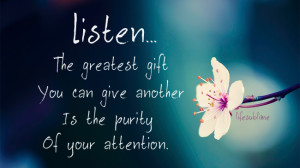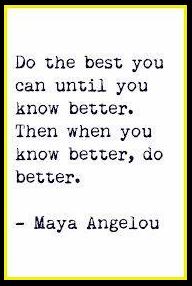
There’s no doubt that the Covid-19 outbreak is creating a huge challenge for businesses and that this challenge is set to continue for some time before things settle and recover.
Commercial impacts are rightly front and centre, and at the same time so many of my HR colleagues and clients are now in full-on crisis management mode, working on everything from creating guidelines for their people on practical matters, e.g. working from home, travel, social distancing, tactical day to day resourcing issues to thinking about longer term impact and reprioritising projects.
We’re also thinking a lot at the moment about the psychological impact of the situation on our people and how this may develop. Although it’s important not to over-react and amplify an already growing level of tension, we shouldn’t be complacent about this. There are plenty of other posts on this subject – a growing number in recent days!
It might seem premature to be thinking about the “legacy of Corona” when we aren’t even at the peak of the problem yet, certainly in the UK anyway. However, I think there is an important opportunity here – a good, moral, healthy opportunity for businesses to really step up to the plate when it comes to putting their people first. In six month’s or a year’s time, when we are hopefully getting past all this, employees are surely going to look back on how their employers handled the care side of things as much as the commercials. For example:
- How quickly did they respond with guidance, so we had clarity on what to do if we felt ill or were worried about what’s ahead?
- How honest were they with us about the whys of their approach and how the company was faring – were we treated like adults and from a position of trust with an expectation that as employees we would do the right thing?
- How did they support us and our families with the need for flexibility. How were we treated as individuals?
- How did they still manage getting the work done – how did they balance “care with fair” so that anyone clearly taking advantage would be held accountable. Did we share the problems and workload properly?
- What was the pay policy during this time and how was it reviewed/changed (if needed)? Did they consider the impact of changing economic pressures on ourselves and families? Were pay reviews and/or previously anticipated improvements to reward packages suspended without a good explanation?
- Did the leadership team actually lead with compassion and by example? Did they walk their talk? Did they prove that our company values were authentic?
I’m sure there’s more we could add to the list.
I believe that those businesses taking a longer-term view, relevant to their financial constraints of course, who strive to treat their people well, with genuine, authentic care and compassion, with honesty, transparency and integrity, will be the ones we’re talking about as employers of choice in the next few years. (Simon Sinek writes about this kind of mindset in his excellent new book: The Infinite Game. Recommended reading!)
I also think there may be some surprises. Some new names in the frame and perhaps, sadly, some others well known to us now who don’t do so well. People remember … loyalty goes both ways and word spreads; we talk to each other about good treatment as well as bad. Doing the right thing may cost more in the short term but the long-term positive impacts will often outweigh. Reputation is increasingly relevant when it comes to recruitment and retention.
So, whilst overcoming the immediate tactical and operational challenges of the Covid-19 outbreak are of course imperative, we also need to keep one eye on the longer-term consequences of our approaches today, next week, next month. If we do the right thing by our people now – even at cost in the short term, their appreciation and engagement will surely lead to a much swifter business recovery in the short to medium term.
In the longer term, I think that some businesses will succeed and grow even beyond their pre-Covid forecasts, with much of this being down to how people were treated during the eye of the storm.
None of this is going to be easy and it will be interesting to see who gets it right.
 I was listening to someone this morning talking about old radios and how we used to have to twist a dial to get the station we wanted (those of you of a certain pre-digital age will know what I mean here) and then a lot of the time, twist it again very carefully in order to eliminate interference in the sound and get the best possible quality signal. Then there was positioning the aerial – that was another part of the fun.
I was listening to someone this morning talking about old radios and how we used to have to twist a dial to get the station we wanted (those of you of a certain pre-digital age will know what I mean here) and then a lot of the time, twist it again very carefully in order to eliminate interference in the sound and get the best possible quality signal. Then there was positioning the aerial – that was another part of the fun.



 We all have what I like to call our “autopilot mode” – and it’s usually set to “on”.
We all have what I like to call our “autopilot mode” – and it’s usually set to “on”. My Father didn’t have a psychology degree or even a library of well read self-improvement books. What he did have was plenty of dispensable wisdom when it came to most aspects of life. I remember, in particular, him talking to me one evening just before I started secondary school (“way back in the last century”, as my kids frequently remind me!):
My Father didn’t have a psychology degree or even a library of well read self-improvement books. What he did have was plenty of dispensable wisdom when it came to most aspects of life. I remember, in particular, him talking to me one evening just before I started secondary school (“way back in the last century”, as my kids frequently remind me!): 
 Have you ever been asked that question? I bet many of us have at some point in our lives. It’s often used as an admonishment when someone thinks we might have got too big for our boots!
Have you ever been asked that question? I bet many of us have at some point in our lives. It’s often used as an admonishment when someone thinks we might have got too big for our boots!